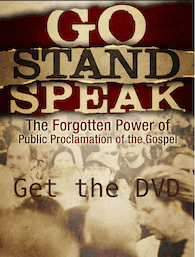March 28, 2012 — The Constitution Party of Wyoming (CPWyo) didn’t miss out on ballot access this time.
After submitting more than 6,000 signatures to the Secretary of State’s Office in Cheyenne, the CPWyo was notified this week that it had turned enough valid signatures to become the fifth recognized political party in the Cowboy State. With volunteers gathering signatures at gun shows, in parking lots and from friends and neighbors over the past 11 months, the CPWyo easily surpassed its initial goal of 5,005 signatures.
The CPWyo, which missed ballot access by a mere 388 signatures in 2010, wouldn’t settle for anything less than “Total Success,” the party’s rallying cry throughout this petition campaign, said State Chairman Rex Fritzler.
“This accomplishment is truly a tribute to our volunteers, the men and women who worked so diligently and doggedly to ensure ‘Total Success,’” said Fritzler, a retired U.S. Army veteran who lives near Glendo. “It would have been easy for us, especially after coming so close in 2010, to have quit. We could have just thrown our hands up and told ourselves, ‘Oh well, we tried.’
“But that was never a consideration, not for a minute,” he said. “We simply had too much belief in the Constitution Party and too much love for our country and our state to settle for anything but victory.”
With the CPWyo’s victory, the Constitution Party (CP) has now achieved ballot access in 14 states for the 2012 election. The fastest growing political party in the United States in terms of voter registration, the CP strives to reflect the principles of the U.S. Constitution, the Declaration of Independence and the Bill of Rights.
The party’s goals include limiting the federal government to its delegated, enumerated, Constitutional functions and restoring American jurisprudence to its original Biblical common-law foundations.
The CPWyo plans to nominate candidates for federal, state, county and local positions at its second state convention June 7-9 at the Agricultural Resource and Learning Center in Casper.
“We’ve been energized over and over again in the last 11 months by the people who have supported our efforts to give Wyoming another choice in the next election and we’re not going to let them down,” said Fritzler, who also thanked the Secretary of State’s Office for its guidance and diligence throughout the petition campaign. “We’re looking forward to identifying constitutionally-minded candidates and supporting them in their efforts to help build a better Wyoming.”
Formed in July 2010, the CPWyo has volunteers in 20 of the state’s 23 counties and has organized groups in six counties. To learn more about the CPWyo or to become involved in the party, go to the official website at www.wyomingconstitutionparty.com.










